This week we delve into the Dark Web, a hidden arm of the Internet where Google doesn't dare to search and where drugs, guns and hitmen are offered up for sale. We explore how the World Wide Web works, and ask whether it can remain unregulated, free and open as it is now? Plus, in the news this week, the worm found lurking in a patient's brain, how scientists have grown pain nerves in a Petri dish, and what do dogs hear when we speak to them?
In this episode

01:04 - Are we contaminating space?
Are we contaminating space?
with Professor Mark Sephton, Imperial College London
This week a warning came from researchers in Switzerland who showed that  DNA on the outside of a sounding rocket - an unmanned craft sent up into space for research - could survive intact even under the extreme conditions beyond our planet.
DNA on the outside of a sounding rocket - an unmanned craft sent up into space for research - could survive intact even under the extreme conditions beyond our planet.
That means teams studying the origins of life in the solar system and beyond need to be careful not to contaminate what might be out there with DNA from Earth. Kat Arney caught up with Professor Mark Sephton from Imperial College, who also works on organic molecules in space, to get his views on this new study...
Mark - What the scientists have done is that they've put DNA on the outside and inside of a sounding rocket, shot it out in space and then collected it when it arrive back on Earth. What they're trying to do is work out how organisms survive space travel.
Kat - What have they found with this DNA that they've tested?
Mark - Well, they did two clever things. They took the DNA and they modified it so that it was fluorescent. But also, so that it had anti-bacterial properties. Once they got this material back on Earth, they could then test it out to see if it's still functioned. So, you can imagine if you send an organism into space, is it going to live when it gets back? And so, that was the idea. About 35% of this material actually retained its fluorescence and anti-bacterial properties. So, the DNA survived.
Kat - This seems quite impressive to me because you don't really think of something like that surviving in the conditions of space.
Mark - It's quite impressive that this stuff was raised to temperatures well above 100 degrees C and they still managed to make it work when it came back down. So, these things are tougher than we think.
Kat - What are the implications do you think for the kind of things that we're doing? For example, we've just heard about the Rosetta mission, going off to a comet, we're sending all kinds of probes to explore places outside our Earth.
Mark - Well, Rosetta of course, one of the things was to look at the start of materials of life in a comet. Of course, you can't do that very well if you're actually taking the materials of life with you and Rosetta and every other spacecraft is built by human beings. What this work does tell you is something about how terrestrial contamination can survive space travel. So, when we send a probe to Mars or to a comet, we've got to be very, very certain that it's extremely clean before it goes because the evidence is increasingly telling us that our bugs or our DNA or the materials that we're made of when they're attached to these spacecraft components can actually survive reasonably well.
Kat - What would be the risks of taking DNA from our planet and seeding it onto other worlds?
Mark - I suppose DNA is not too bad because it would have to find a host. It would have to find a home to live in. But if you take whole organisms then obviously, if they find nice conditions, they can proliferate. And you could think that it's not bad for the environment. What it does do though scientifically is, it destroys the opportunity to learn where life may be distributed in the present in the Solar System where life may have originated and how of course, human beings may eventually have been generated from this whole evolutionary sequence. So, when we go out into the Solar System, we've got to be very careful not to contaminate these forensic records that may help us understand how life originated say, 3 billion years ago.
Kat - So, if you find evidence of human DNA on Mars, it might have come from us in the first place.
Mark - There's always contamination. You've got to be really certain that you're not detecting yourself. That would be a terrible thing to go all the way to Mars, spend large amounts of money, and then just detect someone's fingerprints on the Martian surface.
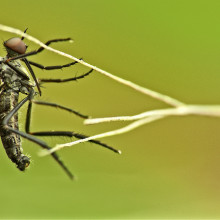
05:01 - The mosquito genome
The mosquito genome
with Mara Lawniczak, Sanger Institute
Every year millions of people are infected with malaria, which is spread by  mosquitoes. But despite the fact that there are hundreds of mosquito species that "could" spread the disease, only a small number actually do. If scientists can work out why, it should become much easier to control the mosquitoes - and the disease.
mosquitoes. But despite the fact that there are hundreds of mosquito species that "could" spread the disease, only a small number actually do. If scientists can work out why, it should become much easier to control the mosquitoes - and the disease.
To do this, Mara Lawniczak, has sequenced the DNA codes of a selection of mosquito species collected from across the world, as she explained to Chris Smith...
Mara - I was visiting a friend who I hadn't seen in many years and he happens to now be an actor although I met him at a biology camp in high school. He is typically in this Wes Anderson films and we were walking around New York City and we bumped into Wes Anderson who was having lunch with his mother and his brother. My friend introduced me to Wes Anderson and his family. They politely asked me what I do and I explained that I work on mosquitoes and trying to understand why mosquitoes transmit malaria. Wes Anderson's mother told me that in Illinois when she was a child, she actually had malaria and I was quite shocked because even though I work on the system, I had never met anyone in the states who actually had malaria while in the States.
Chris - Is that something which was more common historically and now, isn't?
Mara - Yes. Malaria has been reduced in many places in the world largely because of control of mosquitoes. So, for example in the States and I think in Britain as well, wetlands have been greatly reduced. So, that reduces the ability for mosquitoes to find the breeding sites that they need.
Chris - What sorts of mosquitoes transmit malaria? Can any mosquito do that or are there unique species that appear to be able to do it?
Mara - In terms of human malaria, only the genus Anopheles mosquitoes can transmit malaria. Even among Anopheles mosquitoes, there's a lot of variation for whether a particular species is actually transmitting the parasite or not. Even within a species, there's variation, so it's very complex.
Chris - How many different Anopheles species are there then?
Mara - More than 500 across the globe.
Chris - And the number that can transmit malaria out of that?
Mara - Quite a few can transmit, but in terms of actually having, really transmitting and causing disease and death, about 40.
Chris - So actually, a relatively restricted subset of the total. What you're trying to do is try to understand what's special about those ones that means they do transmit this disease compared with the ones that don't?
Mara - Well, there are a lot of questions around this. So, does it relate to how the mosquitoes smell or detect what they're going to take their blood meals from. Many different species bite all sorts of different creatures. So, what makes a mosquito prefer to bite humans? The only way we can ask these sorts of questions is to be able to really get into the genetics of it.
Chris - In other words, do the equivalent for mosquito that we've done for the human and do a human genome project but on a mosquito.
Mara - That's right. We selected 16 different Anopheles species which are quite distantly related from each other in some cases and which span the globe. They're in Asia, they're in Africa, they're in Europe, they're in South America. We've now created good accessible genomes so that researchers can now ask these sorts of questions.
Chris - Did people have to sort of send you in a squashed mosquito in a tube to sequence? How did you do that?
Mara - Yeah, that's exactly right. So, people went out to the field at some point and they collected some mosquitoes and sent off squashed mosquitoes. DNA was extracted from these mosquitoes and sequenced.
Chris - So, you read the DNA message and I suppose, what you can then do is to say, "Well, look. This group all convey malaria and they all have these consistent things in their DNA - perhaps the things that make them good transmitters of malaria lie in that region of the genome."
Mara - That's right. We can't really ask that question with this data yet, but that's one of the main interests of the community.
Chris - What else have you learned by comparing these different genomes and these different strains of mosquitoes?
Mara - There are two groups that are majorly responsible for like the vast majority of malaria transmission in Africa. What we found is that these two are actually the most distantly related. Yet, they've managed to interbreed. So, what we want to know is whether that has enhanced their ability to become major vectors.

09:29 - Brain worm!
Brain worm!
with Andrew Dean, Addenbrooke's Hospital & Dr Hayley Bennett, Wellcome Trust Sanger Institute
A British man repeatedly visited his doctor complaining of headaches and experiencing strange smells that others could not detect. A lesion was visible in a brain scan. Surprisingly, though, it was mobile and, over several months vanished from one part of the brain and reappeared in another. Sara Sjosten went to speak to Addenbrooke's Hospital neuropathologist Andrew Dean and molecular biologist Hayley Bennett to hear how they made an unexpected diagnosis...
Andrew - Rather alarming features that came to life on his repeated MR scans were that the lesion that had started in one cerebral hemisphere appeared to be slowly wandering along into another hemisphere across the midline and into a deep part of the brain. It was clearly time to have another attempt to getting a tissue diagnosis of what his problem was.
Sara - So, you had this patient come in and he had all these disturbances. What did you do at that point?
Andrew - Back in 2012, presented with another piece of tissue by our neurosurgeons, definitely, something you don't see in East Anglia every day, a worm-like structure, which was at least a centimetre long and had features that would really suggest it was sort of tapeworm.
Sara - A tapeworm in this man's brain. This doesn't like a very promising thing to find.
Andrew - Definitely not good for him, but once it's found, at least, one can start to think of an appropriate treatment to kill the organism. The main aim, if you can't try and cut the lesion out and a lesion like this deep in someone's brain isn't very easy to cut out without producing severe damage, is to find out exactly what it is. Now, we know roughly what the class was going to be. However, I was interested to know if we could confirm the diagnosis using a molecular genetic means, which is certainly feasible, given that the worm was fortuitously quite separate from the rest of the inflamed brain. It was possible to take a microscope section, a glass slide, scrape off the bit of worm which would contain its DNA, extract that DNA, purify it up, and perhaps analyse it in terms of whether it could respond particularly well or badly to the standard medication against tapeworms.
Sara - In order to treat this patient, they needed to identify exactly which tape worm this was. I spoke with geneticist Hayley Benett who worked on this worm sample to identify the tapeworm.
Hayley - So, our part of the story was really when the pathology department contacted us with the sample and said, "We have this worm. We want to learn more about it." And we were really excited from the scientific point of view to get hold of the sample and sequence the genome of the worm.
We only had a very small amount of DNA to work from, 40 billionth of a gram. So, we really had to decide carefully what we were going to do with this DNA. First of all, we looked at a gene that is known as the bar code of life and we use that to confirm what exact species this worm was. And then we had some DNA left over. We were able to make what we call a sequencing library and sequence the genome. In this particular case, the rare infection, in our analysis, we took potential drug targets that we've already identified with other tapeworms. If that was still present in this rare worm, there might be a potential for drugs that develop for the more common worms to be cross applied and used for the rare infections.
Sara - But with this identification, could the man be treated?
Andrew - Information given back to the infection diseases, physicians allowed them to immediately start some drug treatment. He's been followed up for a couple of years now with fairly regular MRI scans. The most recent one which I think was a few months ago now showed that the lesion in his brain was largely quiescent. We are hoping therefore that he's been effectively cured.

Creating pain in the lab
with Professor Clifford Woolf, Harvard University
Up to one in five people are afflicted by chronic pain, but our ability to understand and develop better treatments for the condition has been hampered for a long time by the fact that it's been impossible to study human pain nerves in the lab. Now, a team at Harvard have found a way to genetically reprogram skin cells called fibroblasts, and turn them into pain-sensing nerve cells that can be studied in a dish. Chris Smith spoke to Harvard scientist Clifford Woolf, who led the study...
Clifford - I have studied pain neurobiology for most of my career and one of the challenges has been how to study pain in humans when it's not possible to take tissue samples from a living patient. Therefore, we know very little about the way in which the nervous systems of humans operate to produce pain. And so, the goal of our study was to see if we could transform cells that are easy to obtain and turn them into cells that are extremely difficult to obtain, specifically, those that are involved in the generation of pain.
Chris - What cell type specifically were you trying to turn from what into what?
Clifford - Our studying material, fibroblasts. These are the common cells that are the glue of most tissues in the body and are particularly prominent in the skin. Our aim was to convert these directly into a set of cells we call nociceptors and these are the sensory neurons in the periphery, in our skin, in our muscle, in our joints, that respond to tissue damaging stimuli and initiate the sensation that we call pain.
Chris - How do you do that reprogramming effect where you get the cells to turn from these very common skin fibroblasts into much more specialised pain-detecting nerve cells?
Clifford - This is an example if you like of cellular alchemy. The way to do this is to switch off all those genes that make a fibroblast a fibroblast and then switch on those genes that make a pain neuron a pain neuron. The way we do this is by expressing in the fibroblasts a set of proteins called transcription factors which bind to DNA and in this way, they control the expression of whole networks of genes. They switch on many genes and switch off others and we aimed our studies to use transcription factors that would uniquely cause those genes that make a pain neuron a pain neuron to be expressed in cells that had previously been fibroblasts.
Chris - How like real nerve cells are these reprogrammed skin cells that through your study, you have arrived at?
Clifford - We defined the property of these cells in terms of the genes they express, the morphology or shape of the cells, their function, their capacity to for example, generate action potentials which is the electrical activity that enables processing in the nervous system, and by the unique characteristics that are present in pain neurons. For example, pain neurons express an ion channel called TRPV1 which is the ion channel that is activated by noxious heat stimuli about 42 degrees and above which causes us to say, "Ouch!" in response to an intense heat experience. The same channel is activated by capsaicin which is the pungent ingredient in chili peppers. The reason a chili pepper is hot is because it activates this channel. So, we for example could find that our pain neurons responded to capsaicin with a vigorous burst of action potentials representing if you like, them saying, "Ouch!" in the dish.
Chris - So, this really do look like they're recapitulating what happens in the real person in the real situation. I know you've said that it's difficult to model that situation of what goes on in a human in a dish because it's so hard to get real samples. So now, you can do that. What sorts of questions will you be looking to your dish neurons to try and answer?
Clifford - These cells obviously will not recapitulate the full pain experience a human being has, but they certainly, we think, are very useful model to study the initiation of pain. With that in mind, we think they're going to be extraordinarily useful to study drugs that can reduce pain - analgesics. We also think they could be extremely useful to help identify toxic chemicals that can damage these neurons. One particular class of this are cancer chemotherapeutic agents which are known to produce both pain neuropathy which is killing of these sensory neurons in patients. These side effects are so severe that many patients terminate potentially life-saving therapy because of these severe adverse effects. We were able to show that these neurons that we made responded to at least one class of cancer agents in a way that indicated to us that we may be able to detect which individuals have a higher risk of adverse effects. We also hope that we may be able to identify who's at risk of developing chronic pain. Not everyone has the same risk for example after surgery. Some patients have no further adverse effects, whereas others go on to develop severe incapacitating pain that persists for many years. If we can model at least some aspects of that, again, we may be able to identify those patients who need to be very aggressively managed to reduce the risk of developing chronic pain.

19:41 - Does your dog understand you?
Does your dog understand you?
with Victoria Ratcliffe, University of Sussex
There's no denying people like to natter away to their pooches. But is man's best friend actually listening? How do they process this information so that they know to run to the window when they hear squirrel that hide in the corner when they hear the dreaded, "Bath time"? Are they paying attention to both, what we say and how we say it? Georgia Mills talked to Victoria Ratcliffe from the University of Sussex, who's been investigating the canine way of listening...
best friend actually listening? How do they process this information so that they know to run to the window when they hear squirrel that hide in the corner when they hear the dreaded, "Bath time"? Are they paying attention to both, what we say and how we say it? Georgia Mills talked to Victoria Ratcliffe from the University of Sussex, who's been investigating the canine way of listening...
Victoria - Speech is quite a complex signal and it's got a lot of information being transferred at the same time. one of the things humans do is we divide the information up and it's processed in different areas of the brain. So, we wanted to compare whether dogs also divide this information and how similar it is to the way that we do it.
Georgia - As I'm talking to you now, you're not just processing what I'm saying, the words, but also the way I'm saying it, the intonation. What's more, these types of information are dealt with by different sides or hemispheres of your brain. The left hemisphere processes the what and the right processes the how, but how would you find out if this is the case for Fido?
Victoria - We used a behavioural design called head orienting design which has been used with lots of different animal species to look at how this process their own species vocalisations. So, the way it works is you have two speakers that are placed either sides of the dog and have found this played from both speakers at the same time, so that the sound enters both of the dog's ears equally. When sound input goes in through each ear then it's transferred mainly across to the opposite hemisphere of the brain. The hemisphere which is more specialised in processing information works more efficiently. So, the sound is heard more clearly from the opposite ear.
Georgia - In other words, you can work out which side of the dog's brain is processing the information from which way they think the sound is coming from, shown by which way they look. To tease apart words and intonation, some interesting sounds were played to the test subjects. There were phrases the dogs were familiar with...
Exited voice - Come on then!
Georgia - Then there were phrases with neutral intonation, just contain the words the dog knew...
Neutral voice - Come on then...
Georgia - And also some sounds with intonation but without any meaning...
Recording - [exited buzz]
Georgia - And it looks like, like humans, dogs process both the meaning and the intonations of human speech. They process this information in separate hemispheres just like we do.
Victoria - They showed different biases for the different information speech so that the fact that it had biases in the first place is consistent with the idea that they're perceiving the different information in the signal. So, they're not just getting one aspect of the information out. Also, because they showed opposite biases to the verbal information versus the speaker related information, then it suggests that they're processing these two main aspects of speech differently in different areas of the brain. When they heard the verbal content that was meaningful to them, so the familiar command...
Recording - Come on then.
Victoria - They responded differently to when it was not meaningful to them...
Recording - Thom on cen.
Victoria - So, it suggests that the way they're dividing the speech up depends on the relevance to the information to them rather than just the way it's encoded in the signal.
Georgia - But is this very human way of listening shared only with man's best friend or can it be found across the animal kingdom?
Victoria - So, we don't know if dogs show these different biases because during domestication, it's possible that humans have selected dogs that respond quite well to spoken commands. It would've been probably beneficial for them to adapt to be able to understand different information in speech so that they can cooperate and cohabit with humans. So, it could be that dogs have converged in a way that they've evolved with humans or it's possible that other animals would also show this ability if they had enough exposure to speech. So, it could be that lots of different mammals have the potential to have these differences, but we've just seen it in dogs because they're exposed to speech quite a lot in their everyday lives. So, one of the things we'd like to test is whether these differences are also shared in other species of mammal. If they were then it would suggest that these differences that we see in humans in relation to speech have ancient ancestral origins that are shared across different mammals.
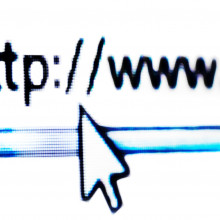
25:02 - What is the Internet?
What is the Internet?
with Dr Andrew Rice, University of Cambridge
While more people have access to more information than ever before on the Worldwide Web, it's still the case that many people struggle to answer the question: What exactly is the internet? Most people are familiar with the idea that you run a program on your computer called a web browser and that gets you online - but how? We sent Naked Scientist Timothy Revell on an internet search to find out. He began by asking some members of the general public for their views on what the Web is...
Boy 1 - It's like a spider's web with loads of different connections to different places with answers in and also, other stuff.
Boy 2 - An internet is where you can go online like you talk to people on the computers.
Woman - It's everybody's computer. Everyone's server is all linked up together.
Man - It's a load of connected websites.
Girl - You click literally on the internet button which is on every iPhone and iPad and computer and it hits you onto some webpage.
Timothy - The "internet button". That's exactly how I see the internet, and I know a lot of other people do too. It's a miracle of modern technology that with just a single click, you have access to what we call the internet. But I wanted to know more. Is the internet really just a button?
Andrew - The best way to think about what the internet is, is to think about what it does.
Timothy - Let's talk to Andrew Rice. He's a lecturer at the University of Cambridge computer laboratory.
Andrew - When you connect your computer or phone to the internet, this enables you to send a message to any other machine on the internet as well. This is actually quite an achievement. To send a message from the UK to the USA, it might take 20 different machines called routers to pass your message through and this will travel through the telephone network, to dedicated computer links across the country, and fibre optic cable under the sea. All of this and your message is delivered in under a 10th of a second. So, what does the internet do? It allows us to send messages between connected machines with other connected machines and it does this by building what's called a network of networks.
Timothy - A network is just two or more computers that are connected so that they can talk to each other. The connection might be via a physical cable or by using some form of wireless technology. If we have two or more networks talking to each other, we call that an interconnected network, or internet for short, which seems pretty simple. But I'm still left wondering, what happens when you actually visit a website? Let's grab a keyboard and find out. First, let's connect the computer to the internet. Oops! Sorry, I had my computer set on 1990s mode. Now we're connected to the internet, let's type in www.thenakedscientists.com and hit ENTER. Then as if by magic, the Naked Scientists homepage appears. But let's slow things down a little. To find out what's actually happening, I spoke to Rob Coupland, the managing director for TelecityGroup. They run a highly secure data centre in London which, I have to tell you, is a little bit loud.
Rob - The building we're stood in here is basically a meeting point where all of the various networks that carry the internet traffic come together and it's really the place where those networks swap traffic with each other. Now, to make that work, they have a system of addresses that are known as IP addresses which are very meaningful to computers that love to work in numbers. But actually, from the point of view of a human being, they're pretty meaningless. So, the first thing that happens when you press ENTER is that web address that you type needs to be turned into an IP address. There's a system known as DNS - domain name server. The best way to think about that is that it's the internet equivalent of the phonebook and if you think about, if I were trying to call you, I wouldn't have a clue what your number was, I get the phonebook out, look up Timothy in there and it gives me the number, and then I press the number into the phone and we're awake.
Timothy - To give an example of what Rob is talking about, when you visit the Naked Scientists website, the electronic phonebook looks up www.thenakedscientists.com and finds the IP address which is 81.201.132.24, which is a bit of a mouthful and not very easy for a human to remember. But it's great for a computer, because it tells it exactly where to find the Naked Scientists website. Once you know the IP address, your request to view the webpage can be sent to the right place.
Rob - What happens is that the data gets chopped up into what are known as packets which are exactly what they sound like. They're neat little parcels of information which have an amount of data in there, and what that packet has is very much like your envelope. It has an address on it that says, where is that going to and also, information about what order the packets should go in. so that when they arrive at the other end, then the computer will reassemble them and then provide the data through to you in the right order.
Timothy - In other words, the host of the website takes the webpage.
Recording - "nakedscientists.com"
Timothy - Breaks it up into small pieces...
Recording - "na - ked - scien - tists - dot - com"
Timothy - Then places each of those pieces into a packet. Each packet is then labelled with a destination address, a return address and how it fits together with the other packets. These are then sent through the internet at break next speed to reach you out to your home. Not every packet takes the same route and so, they may arrive in the wrong order. And some may not arrive at all.
Recording - "tists - na - sci - om - dot..."
Timothy - But once some packets do arrive, your computer asks for any missing packet to be resent. All of this happens in a split second and so, all you see is the Naked Scientists website, appear in its full glory.
Recording - "nakedscientists.com"
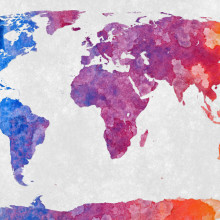
30:45 - The positive power of the Internet
The positive power of the Internet
with Luis von Ahn, DuoLingo, captcha
The Internet has allowed more people to connect and communicate with each other than ever before. This means that collective people-power can be harnessed in a way that was previously unimaginable.
A pioneer in this field is Carnegie Mellon computer scientist Luis von Ahn. Luis first became famous for creating CAPTCHA, which is a system for checking that visitors to a website are genuine humans and not just computers. The system involves typing in a word hidden inside a picture; a task that computers struggle with.
But Luis realised that this was wasting the time of a lot of people's time for little benefit. So, instead of users being asked to enter a random word, he realised that they could instead be asked to enter a word photographed from an old book. And with so many people filling in these CAPTCHA tests every day, in no time it's possible to digitally translate an entire book and then make it freely available for everyone to read. Using this process, over 2 million books a year are now being translated in this way.
More recently, Luis has embarked on a new project that works in a similar way but aims to help people learn a new language - again, for free, as he explained to Chris Smith...
Luis - I started a new project which is Duolingo which is a free language learning platform and it uses a very similar concept. So, when I started Duolingo, we started thinking, "Can we teach languages for free?" there is 1.2 billion people in the world wanting to learn another language, but the majority of them, about 800 million of them aren't satisfied properly. First of all, they're learning English. Second, the reason they're learning English is to get a job and third, they have low socio-economic conditions. So, most people wanting to learn a language are poor people that are learning English more to get out of poverty. Ironically, most of the ways to learn languages usually, it's pretty expensive. So, if you think about a software for learning a language, it usually costs hundreds of dollars. So, we wanted to have a completely free way to learn a language. But if it's going to be completely free, how are we going to finance it? And then an idea very similar to this idea with book digitisation came up which is, can we in some way generate something at a value while people are learning a language? The answer is yes and this is what we're doing now with Duolingo where instead of charging people to learn a language with us, what we do is that while they're learning, some of the exercises that we give them in order to practice are exercises to translate things that have never been translated before and that we get paid in order to translate. So for example, CNN is one of our clients where the idea is that they write, all of their news in English then they send it to us and then we give the article in English to our users. And then the ones that are learning English, in order to practice English, they're translating this CNN article from English into their native language. And then a few different people translate the same article and correct each other. And then one translation emerges of the whole article and then we'll return it to CNN and CNN pays us for that translation.
Chris - Wow! How many people are signing up for this? How many subscribers do you know have learning languages with you?
Luis - Right now, it's already the largest platform for learning languages in the world. We have about 50 million people that have signed up for this.
Chris - And how many different languages can you boast to CNN that you can turn their news into?
Luis - We have about 12 different languages that we've been translating to.
Chris - How much news are you turning out a day?
Luis - We can do a single CNN article in about 4 hours, but we can do multiple at the same time. Right now, we're doing a few hundred articles. Not just CNN, we're also translating other things. For example, Buzz Feed is one of our clients. We're doing a few hundred articles a day, but in terms of how much we could be doing, it's tens of thousands of articles a day.
Chris - What do the end-users say of the experience? Do they find it is helping them to learn language or do they find they end up speaking like a journalist?
Luis - No, because the translation part is only part of the language learning experience. You're right, that you can't learn a language just from translating news articles. So, what happens is that Duolingo is a full language learning service. We teach you how to speak, how to write. We do the whole thing because we want to attract as many users as possible. But some of the exercises are basically things where in order to practice, you get to translate things.
Chris - It's an amazing thing, the internet isn't it, in terms of giving us this way to harness human brain power and ingenuity and do it massively in parallel which we've never been able to do before.
Luis - Yeah. I mean, just having everybody connected, literally, billions of people connected allows you to do things we would never been able to do before. There's a lot of projects, but just as an example, some of the things that we do at Duolingo. We are now able to do something that was essentially impossible before which is, we have so many millions of users that we can run tests on them to try to really figure out what is the best way to learn a language. So for example, if we want to figure out whether we should teach you plurals before adjectives or adjectives before plurals, we want to figure out which is the best order. We can just run an experiment with the next 50,000 people that sign up which with Duolingo, it takes about 12 hours to get 50,000 new people. With the next 50,000 people that sign up, we just - for half of them at random, we teach them plurals before adjectives, and for the other half, we teach them adjectives before plurals and then we measure which ones learn better. We can know once and for all in the system, is it better to teach plurals before adjectives or the other way around. This is something that we could figure out in a matter of hours and figuring this out in a standard classroom is really difficult.
Chris - And it's also going to differ from one language to another so you can actually do the study and do the experiment now to work out what works best for each different language rather than say, one-size-fits-all which is probably what we used to do, isn't it?
Luis - It's not just for one language. It also matters what your native language is. So in fact, teaching English to native Chinese speakers is very different than teaching English to native Spanish speakers. They have just different things that they find difficult. We are now teaching English differently to Spanish speakers than we do to Chinese speakers. We can even get way more personalised. We can even start looking at, it is different to teach English to Chinese speakers that are younger than age 20 than to Chinese speakers that are older than age 20. We can start really finding the best way to do things in a pretty personalised way, something that is essentially impossible when you're dealing with a classroom.
Chris - Now, you've come up with two world-changing ideas for the public good already. Every entrepreneur has a whole suite of ideas in their minds. So, what also have you got your eye on? Where do you think this is going to go next?
Luis - Personally, I would like to continue working on education. Education is a huge problem. I personally don't think that the world's educational system is really getting the job done. I mean, it's not like it's bad, but there are many things that could be done better. I mean, just as a good example, there are 1 billion adults in the world who don't know how to read and write. That is a failure of the current system and I think we can do better. It's not just that. I think there are a lot of other things. I mean, for example in my country, I was born in Guatemala. The high school graduation rate is about 50%. So, about 50% of the people graduate from high school. Of those that do graduate, only about 10% of them have the required mathematics level and only about 25% of them have the required reading level. So really, the vast majority of people are just not learning what they should be learning. This is pretty common in a lot of developing countries, but even when you looked at developed countries, I mean, I don't know how it is in the UK, but here in the US, people learn math for 12 years and at the end, barely know how to add fractions. And this is 12 years of every single day, of education every single day. I would consider that extremely inefficient because I can teach you how to add fractions in probably, a week. So, it's extremely inefficient and I think there's a lot to do in terms of improving the educational system and that would be what I would like to concentrate on.
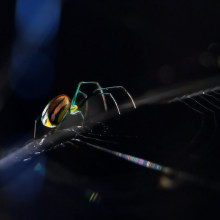
39:10 - The dark net
The dark net
with Jamie Bartlett, author of The Dark Net
Star Wars famously had a "dark side" of the force and the Internet has its  own equivalent! The Dark Net is a part of the web that's generally hidden from most of us and a place even Google doesn't dare to search! Drugs, weapons and even hitmen can be bought there, although, it turns out, it can also be a force for good. Jamie Bartlett submerged himself there for a year to research his new book, and explains to Kat Arney the inner workings of this shady place...
own equivalent! The Dark Net is a part of the web that's generally hidden from most of us and a place even Google doesn't dare to search! Drugs, weapons and even hitmen can be bought there, although, it turns out, it can also be a force for good. Jamie Bartlett submerged himself there for a year to research his new book, and explains to Kat Arney the inner workings of this shady place...
Jamie - The Dark Net is a sort of number of sites that you can't really access with a commercial normal browser - Chrome or whatever.
Kat - So, I can't get to it from Chrome, Firefox?
Jamie - No and the reason you can't is you need a particular type of browser called a TOR browser. It stands for The Onion Router which masks your IP address. We heard about IP addresses earlier and how important they are. This uses very clever encription to mask your IP address, allowing you to browse the net pretty anonymously actually without anyone knowing where you are. It also allows you to access these sites that used the same sort of protocols, the same system, to mean that the sites themselves can't be located either. Essentially, what that means is there's a sort of hidden world of sites without regulation, without censorship. We don't know exactly how many sites there are - 30,000, 50,000. I've heard different estimates. But as a result, I suppose it's as close to the wild west of the internet as you'll find.
Kat - So, it's basically like putting on an invisibility cloak and slipping into this world where everyone else is wearing invisibility cloaks too.
Jamie - That's right. But of course, people use these sites for lots of reasons. So, there are some people that use the dark net, particularly use this browser quite openly, quite publicly. And I think they want to talk about what they're doing and the projects they're working on and why they think privacy or anonymity online is important. It's not quite as anonymous.
Kat - Not all nefarious.
Jamie - It's not all nefarious, absolutely, not.
Kat - So, how was thing actually invented because it seems kind of quite cool and maybe quite useful if you care about privacy or want to do nefarious things on the web? Where did it first come from?
Jamie - Yeah, that's right. Just like the internet itself, it was an invention of the US military who wanted to design a browser that allowed its agents to browse the net anonymously. I mean, they have reasons for staying secret too. After a while, the US military realised that it wasn't a very good idea if they were the only people using this because everyone would know who they are. So, they open sourced it.
Kat - They're the ones with the invisibility cloak.
Jamie - Well, that's exactly right. So, that's not particularly helpful so they open sourced it. It became a sort of piece of software used for human rights activists and sort of free internet expression groups. It's won several awards actually for its contribution to sort of democratic freedoms and freedom of expression around the world. So, it's not a network or a browser that is being designed for criminal purposes. It's being designed for very positive reasons, but of course, people want to stay secret online for all sorts of reasons, not all of them good.
Kat - So, let's talk about some of the slightly nefarious things. I mean, asking purely for a friend, you can buy drugs through the dark web through this kind of system, can't you?
Jamie - For my book, I did exactly that. So, there are several sites that are sort of anonymous marketplaces where more or less, anything can be bought and sold using the crypto currency bitcoin and many people use it to buy illegal narcotics. These sites, there's probably about 20 of them at the moment. Something like Amazon or EBay. They have thousands of products, all with product descriptions and user reviews, crucially.
Kat - People who bought crack also bought crystal meth.
Jamie - Well, that's absolutely right and the way people use these sites is they're looking at the user reviews to see which products and which vendors are the most trustworthy. Essentially, what this means is that it's a proper functioning marketplace, a marketplace that acts in the interest of the consumer. So, it is alleged that the quality, the value for money on these sites is far better than on the streets and the purity of the products you buy there is far more predictable which actually of course is very, very important. The real trick here actually on these sites is not the clever inscription. It's customer service! Because in a competitive marketplace with hundreds of vendors, they are desperate for that 5-star review. And you will not find friendlier, more attentive drug dealers than on the dark net.
Kat - I mean, obviously, drugs are bad, kids. Don't go and buy drugs on the internet, but presumably, this might actually go some way to making consumers and the products safer if people do want to do this.
Jamie - That's a great sort of moral dilemma actually that these sorts of sites throw up and indeed, the whole of the dark net. This question of anonymity and what we do under it: good and bad, it's a difficult one. But you're absolutely right. On the one hand, these sites make more drugs, more available more easily to more people, and that is a bad thing. But if you are going to buy drugs, you don't have the sort of low level crime associated with turf wars over street corners. You can be more confident in the purity of the product and frankly, the quality of the product that you're receiving. So, it's better for the user.
Kat - And it does seem to me that a lot of the problems with the internet, it's not a technology problem. It's a human problem and obviously, it's great that people in countries where they supress the internet, they have this way of communicating, not good that people can buy guns and drugs with it. But obviously, governments I can think, maybe not so keen on this kind of thing. Are governments trying to crack down on at least the marketplaces or the dark web as well?
Jamie - Yeah. They're trying to crack down on the marketplaces of course and understandably and rightfully so. They're selling illegal narcotics. But they also tend to recognise particularly in the US and in the UK, the value of this browser, this TOR browser that allows people to circumnavigate censorship and to maintain their privacy and anonymity online which is incredibly important not just in this country, but especially in more dangerous parts of the world. So, you've got to remember with these sites: many of them are about - they're whistle blowing, they're human rights activists, sort of revolutionary and freedom fighters. I think for most people, they recognise that the great mole dilemma is this, that with that freedom, with that anonymity that these bring, all of those wonderful benefits are of course going to be used by the bad guys that want to stay secret for buying and selling drugs or illegal pornography or guns. And frankly, that is the dark net - all the sort of complexity - moral complexities of human behaviour.
Kat - Is there any way of regulating or controlling it? Or is it the users themselves that are policing this place?
Jamie - There is quite a lot of user community-led policing actually. It's rather interesting. So, illegal pornography is often made available on sites here by say, simply, individuals that upload onto a site that they've created. But people who are part of this community detest that and so, many of them will try and identify where the website is hosted and knock it offline if they can. So, there is a degree of community self-policing. It's probably not enough. But I think that's actually going to be the future.
Kat - And very briefly and finally, should more of us be using this dark net? Obviously, not to buy drugs or anything bad, but is it useful for regular people?
Jamie - More and more people are using it. More and more people are using it because they care about privacy and they care about anonymity online. Not just to do good things or bad things, but because they think it's a fundamental right.

47:01 - Should we regulate the web?
Should we regulate the web?
with Johnathan Nightingale, Mozilla
For better or for worse, the internet is clearly a powerful resource. So should it  be regulated? At the moment there are really no international laws in place to govern how this global entity operates and how people should behave there. And, somewhat surprisingly, this is actually regarded as one of the most powerful virtues of the Internet.
be regulated? At the moment there are really no international laws in place to govern how this global entity operates and how people should behave there. And, somewhat surprisingly, this is actually regarded as one of the most powerful virtues of the Internet.
But where is the web heading, and can it remain unregulated and free forever? Chris Smith spoke to Jonathan Nightingale, Vice President of the not-for-profit web-browser Firefox...
Jonathan - My first interactions with the web and with the internet more broadly were email, text based web pages and the idea that you could gather this information that you could communicate with people, that was very promising. But the explosion of information that's moved online, the idea that really, everything that we know, most creative endeavour of humanity ends up there one way or another. You would've been laughed out of the room. That's such an ambitious thing to have predicted.
Chris - It's not without problems though isn't it because we see increasingly countries which have laws that have stood for hundreds of years and worked incredibly well and now, we've got this new phenomenon of communication and people are trying to apply these laws that they understood. They were abiding by them, everything seemed fine. They don't work in the online space though.
Jonathan - What the internet has really done is two things that we haven't had to deal with before. I think the first one is: it's introduced problems of scale. If you had malice in your heart, you were bounded by how many people you could reach and how many of them would fall for your con or leave their doors unlocked. These days, you can reach a much broader audience much more rapidly. The technology facilitates that. That's problematic and as you say, laws are going to have to catch up with it. And then I would say, the second challenge, it is new, certainly, the scope of it is new with the internet is, the challenge of jurisdiction that it can be very difficult to prosecute people who violate your laws because your laws are different than my loss here in Canada. Even if the UK and Canada can shake hands and agree on some common regimes, it's going to be very hard to do that 200 times.
Chris - Do you think then inevitably, based on what you've just said, that we're looking at a future where the internet will be regulated?
Jonathan - I would have great hope for regulatory organisations, legislative bodies, finding ways to serve that common, to steward it, to put in regulations around how it must remain open. It must remain unmoderated and it should be possible for anybody to come in and to play and to imagine and to create. I would hate for our fear of what a bad actor could do in that commons to cause us to close the commons altogether. What the web needs, you're absolutely right, we need to see evolution. We need to see our notion of how we police, how we patrol, how we protect people. That needs to evolve very rapidly, just as every part of our society is evolving as the web reaches more and more of it. But I think the central notion of a free and open web where people can communicate and innovate without gatekeepers, that's a powerful thing.
Chris - But how free and open do you think it really is because we know that one company who own the search rights to a very large amount of data dominate the internet and yes, they've been instrumental in driving evolution, they've driven a huge amount of change and it's been very exciting, a very exciting journey, but they are nonetheless a very powerful player.
Jonathan - I think there are two threats. One threat to the data of the web is exactly what you've named that we may have legislative action taken. Another threat is that any time you get a resource in a commons that's this valuable, somebody is going to get it into their head that they want to carve off a piece of it. And you're absolutely seeing that there are a couple of organisations right now who are trying as much as they can to pull all of your online life into their garden. It's a beautiful garden and everything works nicely together. As long as you stay in the garden, you don't have to think too much about it, but it's a garden with walls and by the way, the organisations that are doing it today are not the first to try it. Ten years ago, when we released the first version of Firefox, it was into a web that was 96% internet explorer because a company had successfully built a walled garden around the web and said, "If you want to get on the web, you're going to do it through our product." We released Firefox because we felt that choice was critical and hundreds of millions of people voted with us. I think no one organisation is ever going to be able to call the shots on everything that humanity might do with something as powerful as the internet.
Chris - Do you think nonetheless, it will enable people to remain completely free and unbiased because if you are a shop and you bought lots of other shops, the monopolies commission would be after you eventually if you owned the high street? But that doesn't seem to be stopping people on the internet, does it? So, do you think we need something in place to at least make sure that we don't end up slaves to one particular online entity?
Jonathan - There's an element of this that points to a debate that you certainly see in many parts of the world around net neutrality. It's very much an undecided question right now. As far as we're concerned in Mozilla, as far as I'm concerned as an individual, I want to see a neutral internet. I don't want some people to be able to pay for fast lanes and other people to be inevitably dumped into slow lanes. I do think that that will hinder the ability of new entrants to come up and surprise us and displace old titans. I think that's very important and that's an example of a legislative fight that's going to have to happen all over the world. Probably, over the next 20 years, you're going to see different nations try different conclusions about what happens to the internet within their borders. But you're absolutely right, that some kind of affirmative statement that we want the internet to be a commons, that we want it to be a neutral ground is important.
Chris - Where do you see this going next? I mean, we've seen huge change. We've seen this thing take over our lives and become part of almost every aspect of our lives. Where is this going to go next? What do you see on that horizon or even over the horizon 20 years hence?
Jonathan - Twenty years is a long time. I think the takeover you're describing is absolutely something that I feel. It's not something that the rest of the world feels yet, and so, one thing that's going to characterise the next 20 years is bringing that connectivity to everyone. It's not that you just started using the computer instead of your travel agent or phoning friends or something. As a technology fetish, you did it because it solved problems in a new way, gave you more choice. It brought options that you weren't aware of before. Those advantages have not been conferred on everyone yet. So, that's one piece that I think we're going to see a great deal of continuing change around. And then I want to come back to this idea that over the next 20 years, we actually have a couple of possible futures. My fear is that whether it's by well-intension legislatures or by quarterly earnings-seeking organisations that we will see this open interplay chipped away at, that people will try to carve things out, that someone will say, "here's some grand, new technology, but you can only get it on our terms." That's not a struggle that goes away anytime soon, but if I can be a little more aspirational, the future I'd like to see, the future that 20 years ago, I would've been afraid to point to, is that it continues.

54:45 - Can you catch a yawn from a cat?
Can you catch a yawn from a cat?
Dr Hugh Matthews, reader in physiology at Cambridge University, explains why yawns are sometimes catching...
Hugh - Yawning seems to have very little to do with breathing itself. Even unborn babies yawn and they don't need to breath yet!
One reason why we yawn is that we may be trying to stay alert or vigilant during the transition between wakefulness and sleep. This happens in nearly all animals and may in part be a sensory response to muscle contractions from the yawn.
But, in some mammals, it plays an emotional role too, to help calm you down before or after stress. For example, a cat or a dog might yawn more at the vets and a human athlete might yawn repeatedly just before a race.
Yawning could also be contagious. Catching a yawn requires the ability to involuntarily empathise with others. So contagious yawning was believed only to happen in humans and other great apes. However, some psychologists have recently found that dogs can catch yawns from humans too, suggesting that these social animals may have a surprising degree of empathy with their owners.
Nevertheless, while you might be able to catch a yawn from your cat, I think that it's less likely that your cat would be able to catch a yawn from you!

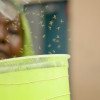


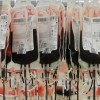





Comments
Add a comment